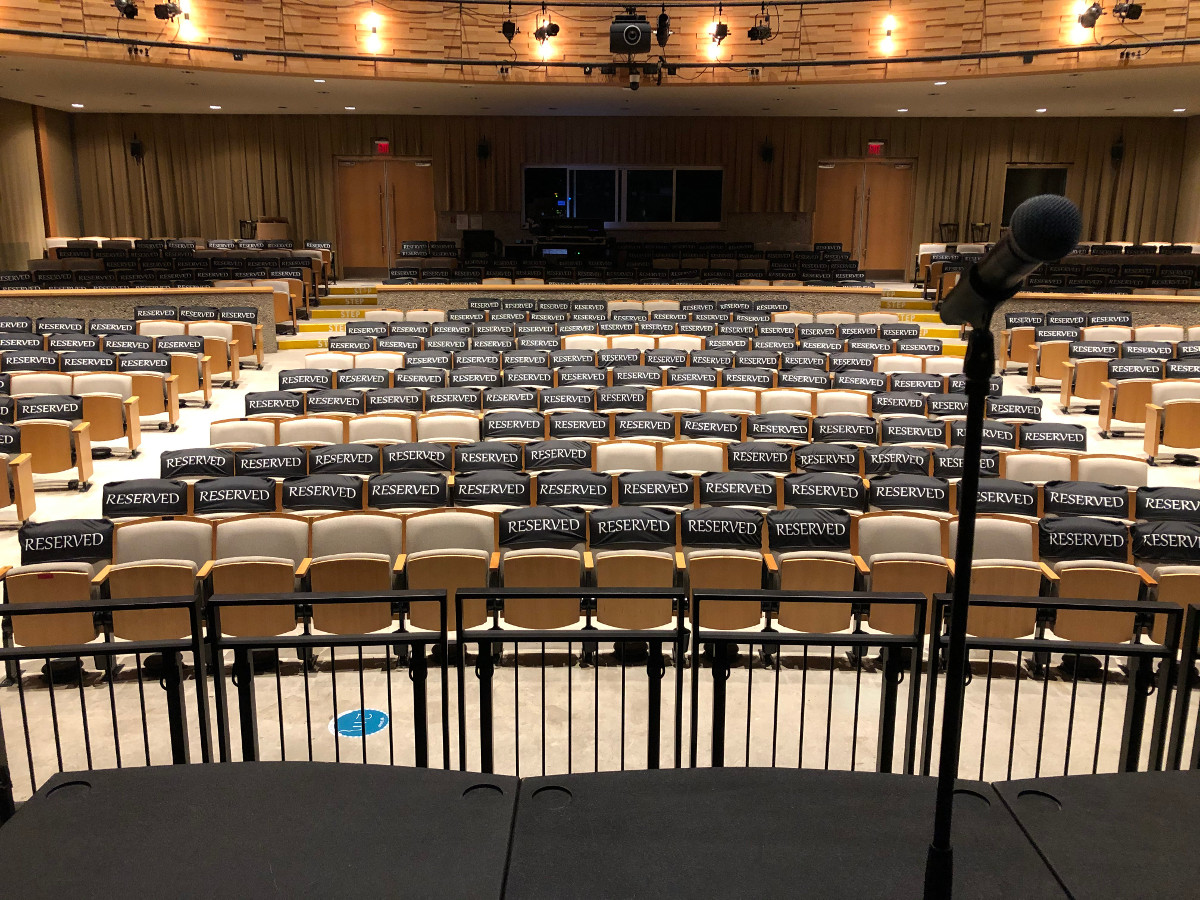The 2021 federal budget, the first federal budget ever presented by a female Minister of Finance, proposes to invest $1.9 billion to restore tourism, arts, culture, and sport over the next five years. Festivals will receive a significant share of these investments. Many questions remain about the level of support for the rest of the live performance sector.
The budget recognized the importance of festivals in the relaunch of the tourism industry. Of the $1 billion investment to revitalize tourism, $200 million is allocated to major festivals, and another $200 million will go to community festivals and events.
Musicians and live music venues were not forgotten. The budget proposes to provide $70 million over three years, starting in 2021-22, to Canadian Heritage for the Canada Music Fund. This includes up to $50 million in 2021-22 to help the live music sector, including music venues, weather the pandemic.
At this point, too little information is available to assess whether enough recovery support will be available for performing arts series presenters, performing arts companies, and artists’ agents and managers working in the performing arts touring market.
The only sector-specific funding for the performing arts value chain is a two-year extension of the supplementary funding to the Canada Arts Presentation Fund. This supplementary funding, in the amount of $8 million per year, is an extension of the funding first announced in the 2019 federal budget, prior to the pandemic.
The budget does include a $300 million recovery fund to be dispersed via Canadian Heritage. This fund will however be for the entire heritage, arts, culture, heritage and sport sectors. At this point, it is not known if this funding will be distributed based on need or if it will be distributed evenly for all sectors.
According to the National Culture Indicators, the Gross Domestic Product of the Live Performance domain in 2020 ($1,478 million) fell 51.3% compared to 2019 ($3,031 million). Of this $1,554 million GDP loss, $1,464 million was attributed to the performing arts sub-domain (which includes live music) and $89 million to festivals and celebrations.
“After a year of profound crisis and distress in the live performance sector, we receive the 2021 federal budget with mixed feelings. On the one hand, we are thrilled to see generous funding for festivals, for live music presenters and for self-employed workers. On the other hand, we remain very concerned about the economic situation in the rest of the performing arts ecosystem. The entire industry continues to be profoundly impacted by the pandemic. No one should be left behind in recovery efforts.”
Michele Emslie, Chair, CAPACOA
In addition to sector-specific support, the federal budget does propose extensions of economy-wide measures. The wage subsidy and the rent subsidy will be extended until September 25, although with diminishing rates beginning July 4. The budget also proposes up to 12 additional weeks of Canada Recovery Benefit to a maximum of 50 weeks, with possible further extension until no later than November 20, 2021.
However, the effects of the pandemic on the live performance sector are expected to outlast the terms of these programs by at least 12 to 18 months (see CAPACOA’s COVID Impact Statistics and latest budget submission). So the budget does not address the long-term recovery of the sector.
There still remain funding gaps that leave specific constituencies very concerned. Performing arts touring agents have not seen much sector-specific funding thus far, and they will be among the very last to recover. Municipally-run and other civic presenting venues have been ineligible for economy-wide programs and are equally short of a plan for recovery.
CAPACOA will share further details about the federal budget as they become available. We will also continue to monitor the situation in the live performance sector and to notify the federal government of outstanding and emerging needs.
Noteworthy budget announcements for the live performance sector
Note: The following proposed investments are on top of the $181.5 million previously announced as part of the Fall Economic Statement.
Restoring Tourism, Arts, Culture, and Sport
- Budget 2021 proposes to invest $200 million through the regional development agencies to support major festivals. This would ensure they can continue to celebrate our artistic excellence and unique character.
- Budget 2021 proposes to invest $200 million through Canadian Heritage to support local festivals, community cultural events, outdoor theatre performances, heritage celebrations, local museums, amateur sport events, and more.
- Budget 2021 proposes to provide $300 million over two years, starting in 2021-22, to Canadian Heritage to establish a Recovery Fund for Heritage, Arts, Culture, Heritage and Sport Sectors.
- Budget 2021 proposes to provide $70 million over three years, starting in 2021-22, to Canadian Heritage for the Canada Music Fund. This includes up to $50 million in 2021-22 to help the live music sector, including music venues, weather the pandemic.
- Budget 2021 proposes to provide $49.6 million over three years, starting in 2021-22, to Canadian Heritage for the Building Communities Through Arts and Heritage Program ($14 million over two years, starting in 2022-23), the Canada Arts Presentation Fund ($16 million over two years, starting in 2022-23), and the Celebration and Commemoration Program ($19.6 million over three years, starting in 2021-22).
- Budget 2021 proposes to provide $15 million in 2021-22 to Canadian Heritage for the Canada Cultural Spaces Fund.
- Budget 2021 proposes to provide $17.2 million in 2021-22 to the National Arts Centre to address financial pressures caused by COVID-19 and to ensure the NAC will continue to support artists and celebrate Canadian culture.
- Budget 2021 also proposes to provide $6 million over two years, starting in 2021-22, to the National Arts Centre to support collaborations with equity deserving groups to help relaunch the performing arts sector.
Seeing Canadians and Businesses Through to Recovery
- Budget 2021 proposes to extend the wage subsidy until September 25, 2021. It also proposes to gradually decrease the subsidy rate, beginning July 4, 2021, in order to ensure an orderly phase-out of the program as vaccinations are completed, and the economy reopens.
- Budget 2021 proposes to introduce the new Canada Recovery Hiring Program for eligible employers that continue to experience qualifying declines in revenues relative to before the pandemic. The proposed subsidy would offset a portion of the extra costs employers take on as they reopen, either by increasing wages or hours worked, or hiring more staff. This support would only be available for active employees and will be available from June 6 to November 20, 2021. Eligible employers would claim the higher of the Canada Emergency Wage Subsidy or the new proposed subsidy. The aim is to make it as easy as possible for businesses to hire new workers as the economy reopens.
- Budget 2021 proposes to extend the rent subsidy and Lockdown Support until September 25, 2021. It also proposes to gradually decrease the rate of the rent subsidy, beginning July 4, 2021, in order to ensure an orderly phase-out of this program as vaccinations are completed, and the economy reopens.
- To continue to support workers through a transition away from emergency income supports and position Canadians for the recovery, the government proposes to provide up to 12 additional weeks of Canada Recovery Benefit to a maximum of 50 weeks. The first four of these additional 12 weeks will be paid at $500 per week. As the economy reopens over the coming months, the government intends that the remaining 8 weeks of this extension will be paid at a lower amount of $300 per week claimed. All new Canada Recovery Benefit claimants after July 17, 2021 would also receive the $300 per week benefit, available up until September 25, 2021.
- Budget 2021 proposes legislative amendments to provide authority for additional potential extensions of the Canada Recovery Benefit and its associated suite of sickness and caregiving benefits, as well as regular EI benefits until no later than November 20, 2021, should they be needed.
- Budget 2021 proposes $3.9 billion over three years, starting in 2021 22, for a suite of legislative changes to make EI more accessible and simple for Canadians over the coming year while the job market begins to improve. The changes include maintaining uniform access to EI benefits across all regions and support for multiple jobholders.
- Budget 2021 announces forthcoming consultations on future, long-term reforms to EI. To support this effort, the government proposes to provide $5 million over two years, starting in 2021-22, to Employment and Social Development Canada to conduct targeted consultations with Canadians, employers, and other stakeholders from across the country. Consultations will examine systemic gaps exposed by COVID-19, such as the need for income support for self-employed and gig workers; how best to support Canadians through different life events such as adoption; and how to provide more consistent and reliable benefits to workers in seasonal industries. Any permanent changes to further improve access to EI will be made following these consultations and once the recovery is fully underway.






